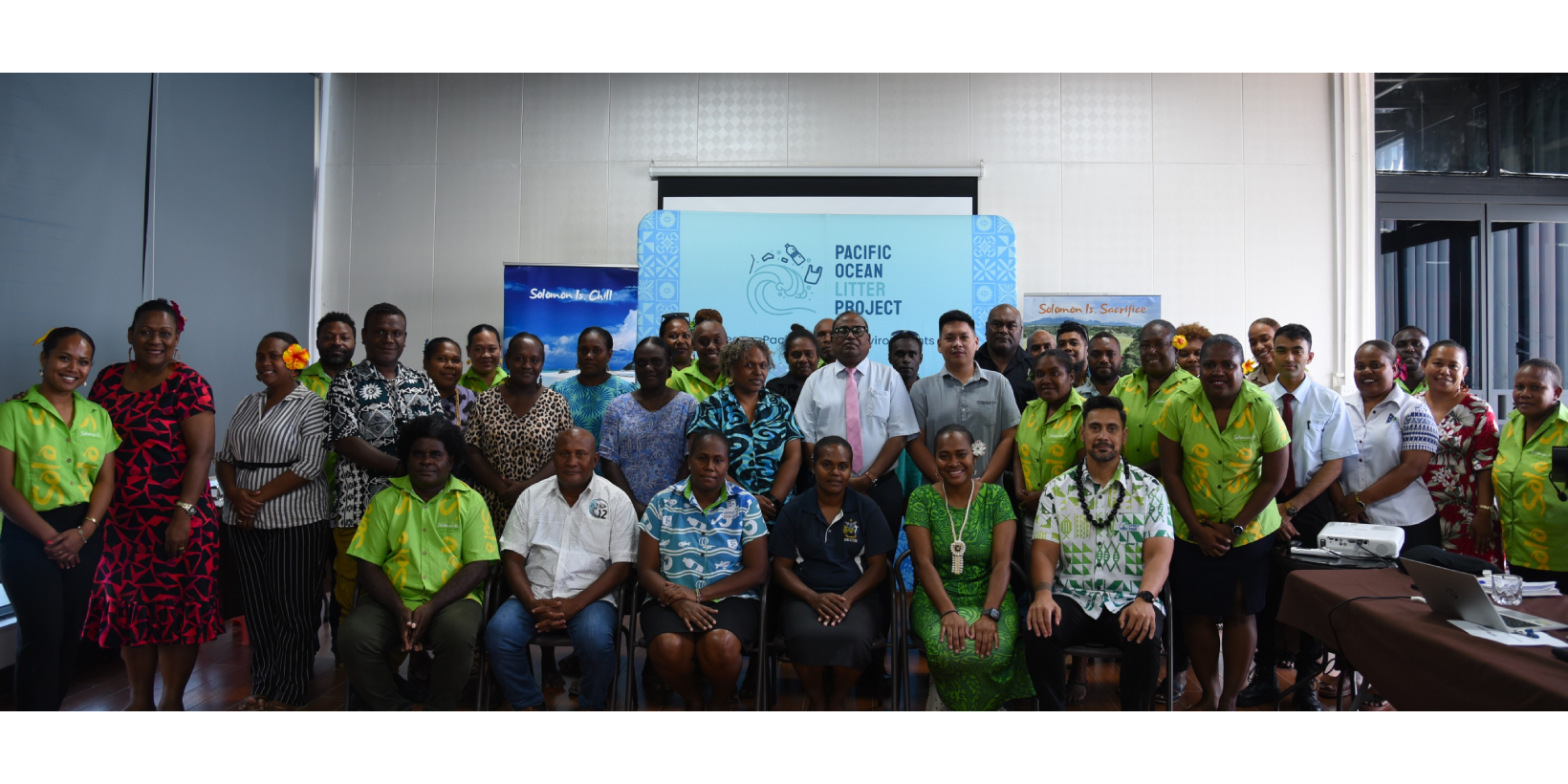Tourism Solomons in collaboration with Pacific Tourism (SPTO) hosted key stakeholders from across the region to update, inform, and align on critical sustainability initiatives that aim to reshape the future of tourism in the Pacific.
Taking place across several days in both Munda and Honiara, the landmark Sustainable Tourism Workshop is seen as an essential step in a collective effort to safeguard the Pacific environment, promote sustainability, and create meaningful tourism experiences that benefit local communities while reducing ecological footprints,
While the main thrust of the workshop focused on the crucial efforts now taking place to phase out Single-Use Plastics (SUPs) in the Pacific tourism industry, the workshop also provided participants with an update on the growing potential ‘Gastronomy Tourism’ today plays in the region.
‘Gastronomy Tourism’ forms the basis of an ongoing Sustainable Gastronomy Tourism Initiative which connects farmers with tourism operators to boost sustainable tourism through culinary tourism experiences.
Other key objectives included:
Regional Tourism Updates: Participants received comprehensive updates on regional tourism initiatives, such as the Pacific Sustainable Tourism Policy Framework (PSTPF) and the Pacific Sustainable Tourism Standards (PSTS), as well as the strategic partnership between the Pacific Tourism Organization (SPTO) and Secretariat of the Pacific Regional Environment Programme (SPREP) to phase out Single-Use Plastics (SUPs) in the Pacific’s tourism industry.
Waste Management & Plastic Reduction: A detailed overview of the Pacific Ocean Litter Project (POLP) was provided, highlighting SPREP’s ongoing efforts to reduce plastic waste and promote sustainable waste management practices across the region.
SUPs Phase-Out Programme: The workshop introduced the Standards and Certification Programme for phasing out SUPs within the tourism sector. This includes an Implementation Toolkit designed to foster a shared understanding and ensure stakeholder buy-in for these critical initiatives.
Tools & Resources for Implementation: Identifying key tools, resources, and gaps was a priority, empowering decision-makers in the Solomon Islands to accelerate the phase-out of SUPs, with a focus on the communities of Munda and Honiara.
Sustainable Gastronomy Tourism: An update on the Sustainable Gastronomy Tourism Initiative emphasized creating authentic tourism experiences, promoting local food itineraries, and connecting farmers with tourism operators to boost sustainable tourism through culinary tourism experiences.
The workshop falls under the Secretariat of the Pacific Regional Environment Programme (SPREP), a regional organisation established by the governments and administrations of the Pacific region to look after its environment.
Pictured: Delegates attending the Sustainable Tourism Workshop in Honiara.









